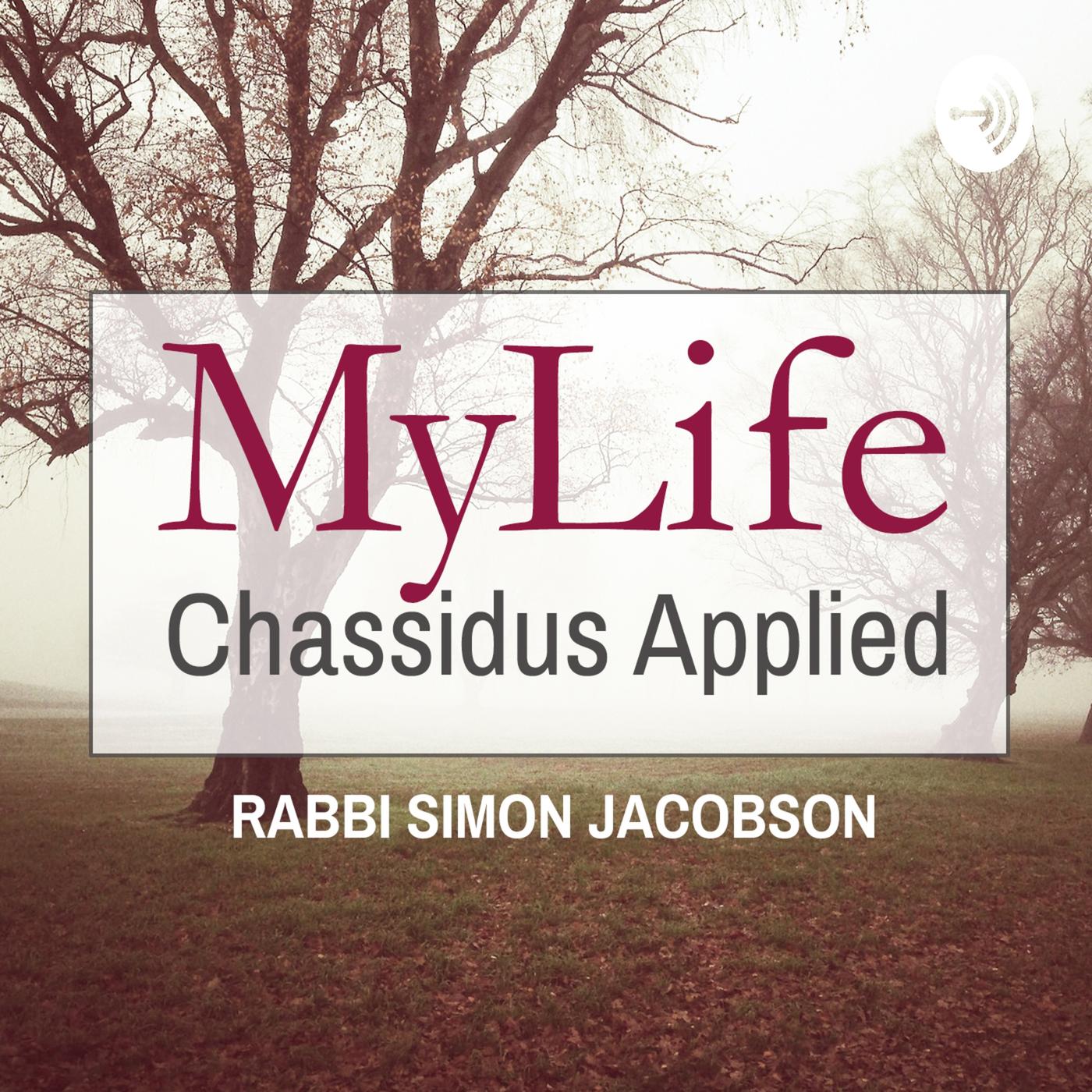
MyLife: Chassidus Applied Podcast by Simon Jacobson addresses the personal and emotional needs of our community by answering the most pressing questions of our lives -- from the perspective of Chassidic thought. The podcast demonstrates how the Torah provides us with a comprehensive blueprint of the human psyche as a microcosm of the cosmos, and offers us all the guidance we need to live the healthiest possible life and build nurturing homes and families, bringing up the healthiest possible children, emotionally, psychologically and spiritually. Get unlimited free downloads of MP3 recordings o
Rabbi Jacobson will discuss the following topics:
What does this time-period and Torah portion teach us today?
Rabbi Jacobson will discuss the following topics:
What does Pesach teach us today?
Episode 493: When: Sunday, March 24, 8:00PM ET For recording visit the archive page or your favorite podcast carrier. Rabbi Jacobson will discuss the following topics: • How can we explain the attack by Iran in the month of miracles and redemption? 02:20 • What does this time-period and Torah portion teach us today? 08:13 • What can we learn from the first Nassi, Nachshon ben Aminodov? 08:53 • How should we prepare for Yud Alef Nissan? 15:59 • What is the best gift to give the Rebbe in honor of his birthday? 20:34 • What lessons can we glean from this week’s parsha? 20:40 • Why would a parsha have such a negative name? 21:10 • How does spiritual “leprosy” apply today, and what is its cure? 26:20 • Is tzaraat of the home a punishment or a reward? 27:43 • Pesach • Pesach is all about chinuch. But I'm filled with pain when I think about my inability to find an appropriate Jewish school for my special needs child. 32:04 • How should we react to the latest attack by Iran? • What are the most effective actions we can take and prayers we can say to help protect us and everyone in Israel from Iran's attacks? 37:59 • Should we say Hallel and sing praises to hashem for the open miracles of hundreds of Iranian drones and missiles being launched at Israel and thankfully no serious damage or injuries? 42:10 • Should we learn from Chezkiah’s mistake and sing praise to Hashem to win the war? 42:58 • Would the Rebbe encourage retaliation? 46:54 • Is this attack hinted at in Ezekiel chapters 38-39? 48:10 • What can we learn from the dispute between Yitzchok and Yishmael to help resolve today’s battles? 56:15
Rabbi Jacobson will discuss the following topics:
What does this time-period and Torah portion teach us today?
What can we learn from the upcoming solar eclipse and the recent East Coast earthquake? The Gaza War
Rabbi Jacobson will discuss the following topics:
What does this week’s Torah portion and time period teach us today?
The Gaza War Moshiach What can we learn from the bridge collapse in Baltimore?
Is it wrong for a Rabbi to use an artificial intelligence program to write his weekly Dvar Torah?
Episode 490: Special Purim Edition
When: Sunday, March 24, 8:00PM ET
For recording visit the archive page or your favorite podcast carrier.
Rabbi Jacobson will discuss the following topics:
What does Purim teach us today?
Rabbi Jacobson will discuss the following topics:
What does this week’s Torah portion and time period teach us today?
7 Adar
Rabbi Jacobson will discuss the following topics:
What does this week’s Torah portion and time period teach us today?
Rabbi Jacobson will discuss the following topics:
What does this week’s Torah portion and time period teach us today?
What does this week’s Torah portion and time period teach us today?
Lessons from Adar
How does joy help us get through difficult challenges?
What is the acronym of Adar?
Does the joy in Adar have the power to transform true darkness?
Is the joy in Adar initiated from above or from our work below?
If we defeated Amalek on Purim why are we still facing enemies like Hamas?
Why don’t I see blessings in my life as the Rebbe Rashab promised to those who will learn Chassidus?
Parshas Ki Tisa
What can we learn from Moshe challenging and prevailing over G-d to forgive the people?
Is there a connection between the broken tablets and the shattered containers of Tohu?
Is the October 7 massacre and subsequent war a punishment for building the Golden Calf?
How could the people transgress such a grave sin of idolatry just 39 days after the greatest revelation at Sinai?
Why not support a Palestinian state?
Why not deport the Arabs and Muslims from Israel?
What should be our attitude to Zionism and to displaying the Israeli flag and singing HaTikvah?
Can you be a Zionist without displaying the Israeli flag and singing its anthem?
Should we allow these displays in our organizations?
Should we not participate in events that have these displays?